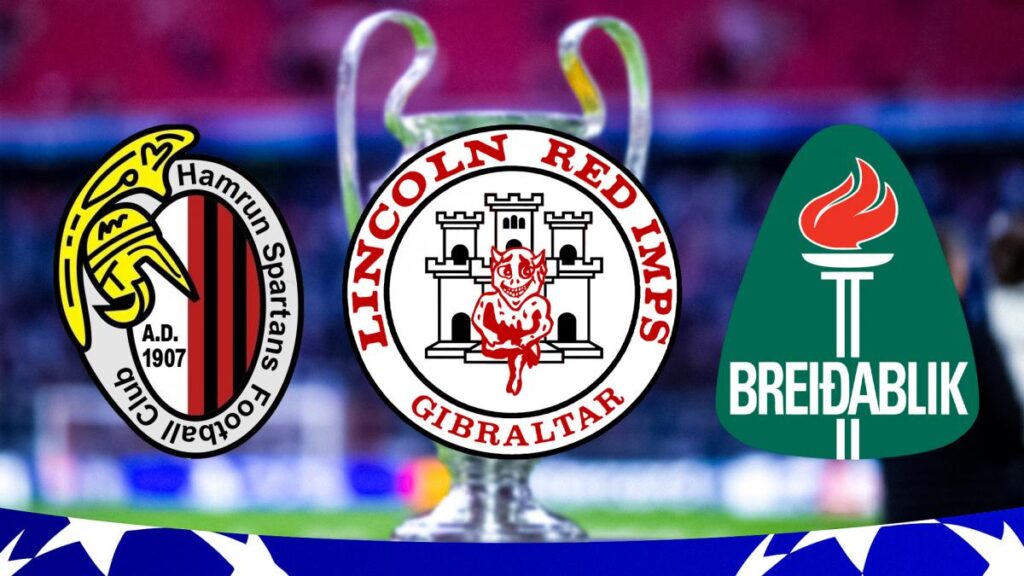
Barely time to digest the final, and already the time to go back to battle. A month and a half after the apotheosis experienced by Paris Saint-Germain in Munich, where the capital's club raised its very first Champions League against Inter Milan, the most prestigious of European competitions already resumes its rights. In a relative media discretion, the first qualification round of the 2025/2026 edition marks the kick -off of a new continental marathon. This inaugural tour concerns the national champions of classified associations between the 25th and 55th place in the UEFA ranking, with the exception of Liechtenstein, which does not have a national championship. For these clubs from Georgia, Kosovo, Iceland or Armenia, the European dream begins in mid-July. If the road is still long towards the league phase, these first games are already carrying a particular intensity: each confrontation is played in round trip, and the winners access the second qualification round. The losers, on the other hand, see their journey continue in the league conference, where they will be donated to the second qualification round of this third European competition.
The new format of the Champions League makes every qualifying round even more crucial. In 2025/2026, for the second season in the so -called “league phase” format, 36 clubs will participate in a single giant hen, with eight team games against eight different opponents. To reach this phase, the path is always strewn with pitfalls for the champions of “small” countries, which go through what are called the champions way. The qualification route has four laps: the first, second, third qualification round and the dams. At each stage, the matches are played in round trip, and only the winners continue the adventure in the champions League. Note that this route now guarantees five tickets for the league phase, against four in the previous system, an opening designed to preserve the chances of national champions from less well -classified associations. The clubs eliminated at each stadium are not deprived of Europe: according to the tour which they have left, they are drafted in the Europa League or in the league conference, thus ensuring a prolonged European presence for many of them. This system not only promotes competitiveness, but also the exhibition and development of these clubs from more modest championships, who live their European nights there.
Stories to tell!
When Breiðacka lost (1-0) in Albania against KF Egnatia, there were few who predicted a future beyond this first qualification round. The score seemed almost flattering as the Icelanders had suffered, unable to put their game in a tense and closed encounter. However, a week later, in Kópavogur, everything changed. Carried by an icy wind and a popular fervor rarely reached in the intimate enclosure of Kópavogsvöllur, Breiðablik delivered an unexpected recital, inflicting a resounding (5-0) to the Albanian, unrecognizable. Led by the scorer Kristall Máni Ingason, author of a double, and a remarkable collective intensity, the Icelandic club signed one of the greatest reversals of this first round. This kind of match, where the breath of football goes beyond sports logics, recalls that European magic also lives in these margins. Founded in 1950, Breiðacka has long been a discreet but structured training club, regularly producing talents for the Icelandic elite. It was not until 2010 that the club won its first champion title, starting a new era. In 2023, he became the first Icelandic club to reach the third qualification round, a historic performance. Here it is again launched on a similar trajectory. In a country where climatic conditions make football demanding, where synthetic lawns are the norm, Breiðacka embodies a modern, fresh and sincere ambition. And if the dream should continue, it would do it in the wake of this unforgettable night when a whole club challenged winter in the middle of summer. Icelandic football, whose fairy tale from Euro 2016 is still engraved in memories, may hold a new chapter to write with Breiðablik.
In the recent history of Maltese football, few are the moments when local clubs have been able to pretend to compete on a European scale. And yet, ħamrun Spartans wrote a new and bright page to Vilnius. Beaten (2-0) to go by the žalgiris, a more experienced and accustomed opponent of continental jousts, the Spartans knew each other back to the wall. But he reigned with them a fierce conviction, fed by their past as a historic club – founded in 1907, seven times national champion, but fell into oblivion for decades before reborn recently thanks to a solid sporting and financial reconstruction. On the Lithuanian lawn, the miracle took place. Two goals from elsewhere, an unshakable defensive intensity, then a penalty shootout worthy of a thriller: ten successful shots on each side before goalkeeper Jonathan Debono became the hero of an island, arresting the eleventh Lithuanian penalty. The shots of jubilation that followed remind us that, sometimes, football gives to the hundredfold what passion gives it. Ħamrun thus becomes the first Maltese club to cross the first round League of the Champions in three seasons twice. Their epic is part of a revival of Maltese football, where clubs, long semi-professional, invest more, attract foreign talents, and dream of larger scenes. But it is also a romantic tale: that of a small Mediterranean club, forged in the Salin wind and the alleys of Valletta, which refuses to be content to appear. On the European scene, ħamrun no longer wants to be invited. He wants to play the main roles. On this small passionate archipelago, the jubilation was total. More than a feat, this victory symbolizes the resilience of a club which, by dint of believing in the impossible, ends up provoking it.
If they no longer create surprise as in the past, Lincoln Red Imps remain the tireless ambassadors of a tiny territory which, at each European campaign, defies the laws of the possible. Faced with Víkingur Gøta, champion of the Farian Islands, the Gibraltarians were able to make their continental experience speak: a stunning 3-2 victory outside, then a serene 1-0 confirmation at home, in the lair of the Victoria Stadium, stuck between the sea and the rock. Founded in 1976, Lincoln has dominated local football without sharing since the entry of Gibraltar into UEFA in 2013. But it was in 2016, with a historic victory against Celtic Glasgow, that they went from anonymity to the status of European curiosity. Since then, the club has professionalized, strengthened, and above all learned. Their journey in 2021 to the group phases of the Europa League conference was a turning point, proving that even from a territory of less than 35,000 inhabitants, the high level was not a chimera. This year again, their solidity, their composure and their realism do wonders in an often trap qualification. And if the Lincoln Red Imps continue to move forward, it is not only for them. It is for Gibraltar entirely, for this passionate little enclave where football serves as a mirror for local identity. By accessing once again to the second qualification round, they extend a dream that very little thought possible: to exist, really, in the universe of the giants. Seeing your flagship club progress in the towers of the largest club competition is a feat that is almost miracle. And if this adventure was to stop further, it will have already offered a whole people the illusion, the time of a few evenings, to exist at the heart of the European concert.
All the results of the 1st qualification round
- Žalgiris Vilnius (Lit) vs Hamrun Spartans (MLT) (2-0, 0-2, 10-11 tab)
- KuPS (FIN) vs FC Milsami (MDA) (1-0, 0-0)
- New Saints (WAL) vs FK Spark (MKD) (0-0, 1-2)
- FC Iberia 1999 (Geo) vs Malmö FF (Sue) (1-3, 1-3)
- Levadia Tallinn (EST) vs FK RFS (LVA) (0-1, 0-1)
- KF Drita (Kos) vs FC Differdange Differdange 03 (LUX) (1-0) 4-2)
- Vikings Street (FRO) vs Lincoln Red Imps (GIB) (2-3, 0-1)
- Kf Egnatia Rrogozhina (ALB) Vs Broadcasting (ISL) (1-0, 0-5)
- FCSB (Rou) vs Inter Club d'Addes (and) (3-1, 1-2)
- AC Virtus (SMR) vs HŠK Zrinjski Mostar (Bos) (0-2, 1-2)
- Olympia Ljubljana (SVN) VS Kaïrat Almaty (KAZ) (1-1, 0-2)
- FC Noah (poor) VS Future Podgorica (MNE) (1-0, 2-2)
Returning matches between Shelbourne FC (IRL) – Linfield FC (NIR) (1-0) and Ludogorets Razgrad (BGR) – Dinamo Minsk (BLR) (1-0) take place this Wednesday
Pub. the
